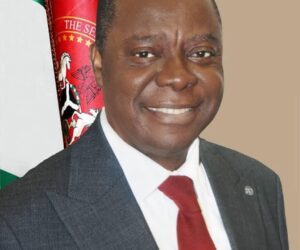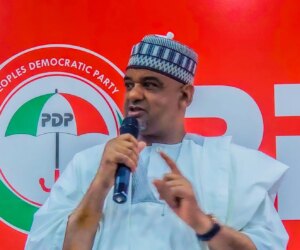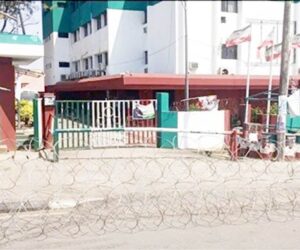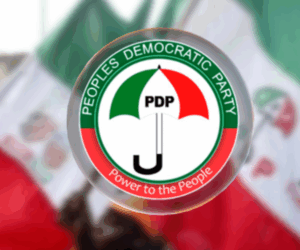9
The Socio-Economic Rights and Accountability Project (SERAP) has called on Nigeria’s 36 state governors and the Minister of the Federal Capital Territory (FCT), Mr Nyesom Wike, to publicly account for an estimated ₦14 trillion in fuel subsidy savings reportedly received through the Federation Account Allocation Committee (FAAC) since mid-2023.
In separate Freedom of Information (FoI) requests dated October 4, 2025, and signed by SERAP’s Deputy Director, Kolawole Oluwadare, the organisation urged the governors and the FCT minister to disclose full details of how the funds have been spent, including locations of projects executed, implementation status, and completion reports.
SERAP’s request follows rising concerns that despite massive increases in state allocations since the removal of fuel subsidy, millions of Nigerians are yet to see improvements in public services such as healthcare, education, and social welfare.
“There is a legitimate public interest for governors and the FCT minister to urgently explain how they have spent the money they have so far collected from the subsidy savings,” SERAP said in the letter.
The organisation maintained that the funds, savings from the removal of fuel subsidy, should be used solely for the benefit of poor and vulnerable Nigerians who continue to bear the brunt of higher fuel prices and inflation.
SERAP urged the governors and the FCT minister to invite the Independent Corrupt Practices and Other Related Offences Commission (ICPC) and the Economic and Financial Crimes Commission (EFCC) to track and monitor the spending of the subsidy savings to prevent diversion of the funds into private pockets.
“The spending details of the money collected by several states and the FCT from fuel subsidy savings have been mostly shrouded in secrecy,” the group stated, warning that failure to account for the funds would amount to “a morally repugnant result of double jeopardy on the poor.”
The organisation noted that while FAAC distributed ₦28.78 trillion from the removal of fuel subsidy in 2024, representing a 79 percent increase from the previous year, many states have not demonstrated transparency or accountability in managing the additional revenue.
According to SERAP, state governments’ allocations increased by 45.5 percent to ₦5.22 trillion, with monthly disbursements in 2025 reportedly exceeding ₦1.6 trillion. Yet, the organization lamented that “millions of Nigerians have not benefited from these increased allocations.”
The group alleged that some states have continued to owe salaries and pensions, while others have diverted public funds, possibly including subsidy savings, towards luxury travel, purchase of bulletproof vehicles, and lavish lifestyles of public officials.
“Nigerians continue to face a worsening poverty crisis,” SERAP warned. “Several states remain underdeveloped and residents still lack access to essential public services.”
Citing constitutional and international legal provisions, SERAP reminded the governors that Sections 13, 15(5), and 16(2) of the Nigerian Constitution require public officials to abolish corrupt practices, ensure that national resources are used for the common good, and promote transparency.
The organization also referenced Articles 5 and 9 of the UN Convention against Corruption, which obligate governments to maintain accountability in the management of public resources.
SERAP further invoked the recent Supreme Court judgment affirming that the Freedom of Information Act applies to all public records in the Federation, including those held by state governments. The ruling, SERAP said, “ended the unfounded claim by governors that the Act does not apply to them.”
“Any failure to account for the spending of money collected by your state from the subsidy savings will amount to a blatant disregard of the Supreme Court judgment,” the group stated.
SERAP has given the governors and the FCT minister seven days from the receipt or publication of the letter to comply with its demands.
“If we have not heard from you by then, SERAP shall consider appropriate legal actions to compel your state and the FCT to comply with our request in the public interest,” the group warned.
The organization emphasized that transparency in the use of the subsidy savings is essential for democratic accountability, public trust, and effective governance.
“Citizens’ right to know promotes openness and helps prevent abuse of power,” SERAP said. “Disclosing the details of how the savings are spent will allow Nigerians to scrutinize and hold their leaders accountable.”
The watchdog urged the governors and the FCT minister to uphold the constitutional and legal obligations to disclose the information and ensure the savings are used to alleviate poverty, enhance access to public services, and improve citizens’ quality of life.
SERAP concluded that the era of secrecy in state finances is over, stressing that “the Supreme Court has made it clear that governors can no longer hide under legal technicalities to avoid accountability for public funds.”







